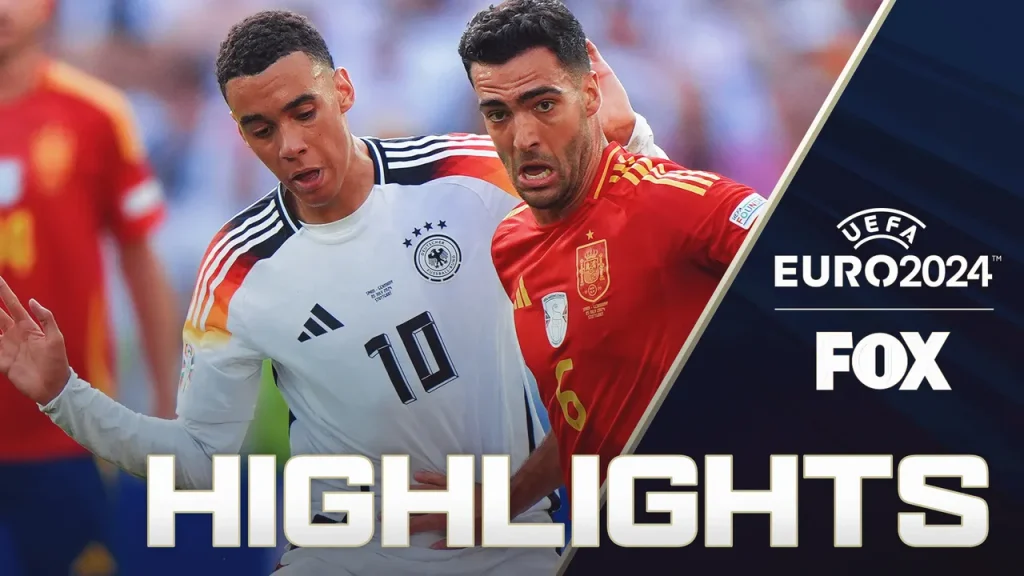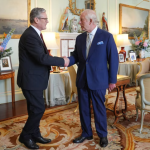UEFA bans Demiral for two matches after wolf gesture
Elsewhere at Euro 2024, UEFA has suspended Turkey defender Merih Demiral for two matches for making a controversial hand gesture in Turkey’s 2-1 win over Austria in the last 16.
After scoring the second goal, Demiral made a sign with each hand that is used by Turkish nationalists and is associated with the Turkish ultra-nationalist organisation, the Grey Wolves.
Demiral defended the gesture afterwards, saying it was an innocent expression of national pride and that he was hoping he’d have “more opportunities to do the same gesture again”.
UEFA said it banned Demiral “for failing to comply with the general principles of conduct, for violating the basic rules of decent conduct, for using sports events for manifestations of a non-sporting nature and for bringing the sport of football into disrepute.”
The ban rules Demiral out of his team’s quarterfinal against the Netherlands on Saturday, and the semifinal, should Turkey progress.
Turkey’s vice president, Cevdet Yilmaz, denounced the decision as unacceptable and called for it to be “corrected,” adding that: “The excitement and beauty of football should not be overshadowed by political decisions,” Yilmaz said.
Turkish President Recep Tayyip Erdogan is due to attend Saturday’s game. He scrapped plans to attend a meeting in Azerbaijan and decided to attend the match instead to show his support for Demiral.
German’s east-west footballing divide
Beyond some of the bigger headlines, the tournament has shone a spotlight on how German football today is still shaped by the legacies of its divided history.
It’s noteworthy that, as the Euro 2024 quarterfinals are played on Friday and Saturday, not even one of the four matches – or the resulting semifinals or the final – will be staged in the former East Germany. The west is best, it seems, when showcasing Europe’s largest football tournament as it reaches its zenith.
Of the 10 cities that have hosted Euro 2024 matches, including Munich, Hamburg, Frankfurt and Dortmund, only one club stadium is in a part of the country that formed part of the former East Germany – Leipzig RasenBallsport, known as RB Leipzig.
Only one player in the current German squad – 34-year-old midfielder Tony Kroos, who is set to retire from football after the tournament – was born in the now-defunct communist German Democratic Republic, or GDR as it’s more commonly known.
Disconcertingly, there are currently just two teams from the former eastern part of the country among the 18 teams in the top-flight competition.
“Unfortunately, it’s probably a fair reflection of the divide that still exists and may even be widening,” Ulrich Hesse, a journalist, author and editor of the football site 11Freunde, told Gouri Sharma for Al Jazeera.
Stadium snapshot – Stuttgart Arena
Capacity: 51,000
Inauguration: 1933
The original stadium opened at this site in 1933 and has been rebuilt several times.
Stuttgart Arena has a long international footballing history, hosting matches in the 1974 FIFA World Cup, the UEFA Euro 1988 and the 2006 FIFA World Cup.
Bundesliga club VfB Stuttgart calls this place home – and they used the stadium to good effect, performing brilliantly all season and finishing second behind Bayer Leverkusen in the 2023/24 season.
Today’s match between host Germany and Spain will be the final fixture played at Stuttgart Arena during Euro 2024.


Photos: The home support in Germany



-
Germany’s route to the quarterfinals
-
- 5-1 win over Scotland in Group A in Munich
- 2-0 win over Hungary in Group A in Stuttgart
- 1-1 draw with Switzerland in Group A in Frankfurt
- 2-0 win over Denmark in the round of 16 in Dortmund
-
Spain’s route to the quarterfinals
- 3-0 win over Croatia in Group B in Berlin
- 1-0 win over Italy in Group B in Gelsenkirchen
- 1-0 win over Albania in Group B in Dusseldorf
- 4-1 win over Georgia in the round of 16 in Cologn



